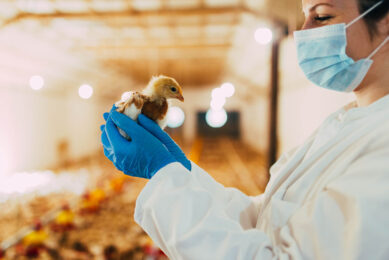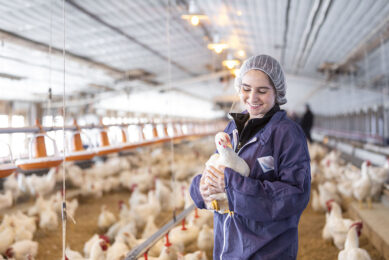Studies link chicken to human infections
Chicken has been named as a source of E. coli bacteria that is making its way into people and causing infections, a Canadian study suggests.
A team from McGill University in Montreal compared the genetic fingerprints of E.coli from urinary infections to 320 samples of E.coli from chicken, pork and beef and found chicken to be a surprisingly close match.
“Chicken may be a reservoir for the E. coli that cause infections like urinary tract infections,” said study author Amee Manges.
The data suggested the infections came directly from the birds rather than from human contamination during food processing.
“We are concerned about the selection and amplification of drug-resistant E. coli on the farms because of improper or overuse of antimicrobials during food animal production,” Manges said.
“During the past decade, the emergence of drug-resistant E. coli has dramatically increased. As a consequence, the management of UTIs, which was previously straightforward, has become more complicated; the risks for treatment failure are higher, and the cost of UTI treatment is increasing.”
He said reducing the use of antimicrobials on farms could even lead to a reduction in the level of drug-resistant infections in humans.
A new type of resistance in E.coli called Extended-Spectrum Beta-Lactamase (ESBL) has been spreading among British farms, according to the country’s Soil Association. They said in the UK between 5-10% of all urinary-tract infections caused by E.coli are now ESBLs and have called for a reduction in the use of antibiotics in livestock.
However, the British Poultry Council has disputed the SA’s report, saying that the UK poultry meat sector follows a responsible and responsive programme of antimicrobial stewardship.
Peter Bradnock, chief executive of the British Poultry Council, said: “We are aware of new scientific information on ESBLs and the ways they develop, and have reflected this in changes in the categories of antibiotics and prescription criteria for antibiotic treatment of chickens. We are not, however, aware of any recent evidence that ESBLs are increasing in chicken farms across the UK.”
Join 31,000+ subscribers
Subscribe to our newsletter to stay updated about all the need-to-know content in the poultry sector, three times a week. Beheer
Beheer








 WP Admin
WP Admin  Bewerk bericht
Bewerk bericht